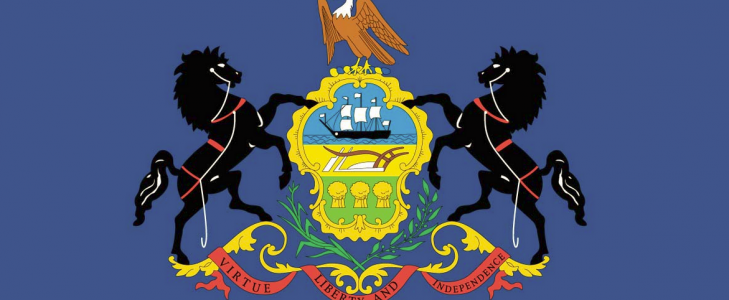Pennsylvania has built a strong gaming market that includes 12 land-based casinos. However, state politicians also recognize the value in online gaming if they’re to keep growing in the ultra-competitive East Coast market. So HB 649, a bill that would legalize and regulate iGaming in the Keystone State, is being taken very seriously right now.
“One of our tasks was to take a look at the overall gaming situation in Pennsylvania,” said John Payne, the state rep. and House Gaming Oversight Committee chairman who introduced HB 649. “How are we competing against states that have gaming now that surround us?”
The states that Payne speaks of include Delaware, Maryland, New York, Ohio and West Virginia, all of which have recently legalized casino gaming. Of course, there’s New Jersey too, which has seen a big decline in recent years, but they still present formidable competition. That said, Payne doesn’t want to overlook anything when it comes to using iGaming to gain an edge over area competitors.
HB 649 allows for any game to be considered
“Everything is on the table,” Payne told the Delaware County Daily Times when speaking of his iGaming bill. “If it’s available, we feel that it’s something the gaming control board should regulate. Our hope is to allow the board to identify them.”
Specifically, HB 649 would give the Pennsylvania Gaming Control Board the power to instate virtually any online game. This means online poker, casino games and even fantasy sports would all be options. It’s also worth adding that this legislation gives Pennsylvania the ability to negotiate interstate iGaming pacts with other states too.
How licensing would work
Interactive gaming licenses would be sold to each of the state’s 12 casinos at $5 million a piece. And gross revenue would be taxed at a 14 percent rate, which, when compared to regulated European markets like France, Italy and Spain, is a pretty good deal.
But before the market becomes a reality, Payne wants to get out and speak with state residents about the measure. “Rather than sit in Harrisburg, it’s better for us to travel and speak with the community,” said Payne. “It’s a great way to connect to the area and speak directly to the customers.”
But there’s another bill on the table
Payne isn’t the only one who’s introduced online gaming legislation. State Rep. Nick Miccarelli, who co-sponsored HB 649, has also introduced his own bill called HB 695. And the latter would be quite limiting compared to what Payne is proposing.
“Essentially, my bill would be a poker-only bill,” Miccarelli said. “That’s more a game of skill than a game of chance. At least as a start, it’s something. I think starting with poker would be the way to go to get the appropriate infrastructure in place.”
While Miccarelli makes a good point about getting the right infrastructure in place, he also admits that Payne’s all-encompassing legislation might be better for the short term. “We have seen a downturn in some revenues, from slots to blackjack,” said Miccarelli. “Rep. Payne’s bill would probably generate more revenue and that’s something that the state needs right now.”
As of now, both bills are merely being discussed by the House Gaming Oversight Committee. But with pressure to turn around sagging revenues now, the push will be on to get one of these pieces passed in the near future.
